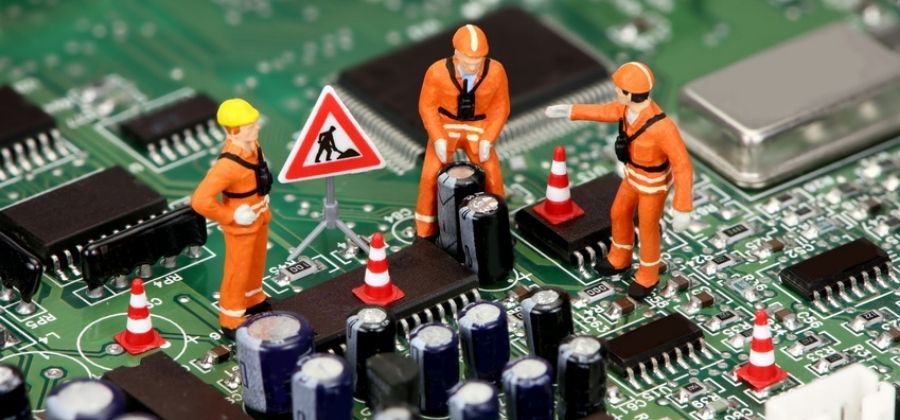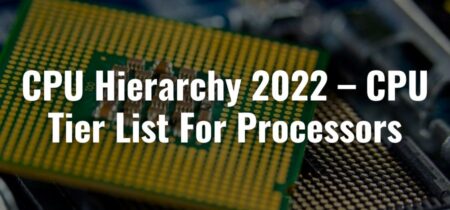New CPUs come with many new features, but that doesn’t mean you can’t use them. You have to ensure that your motherboard supports them, and there is a chance that your motherboard may not support all the new features that your CPU has.
The first thing you should check when buying a new motherboard is to make sure it is compatible with your CPU. You can check the compatibility by looking at the specifications on the back of the motherboard. If you look for the CPU socket type, you can look up its compatibility here. This is what you need to do. The socket type tells you which motherboard you can use with your CPU.
Will this article look at the relationship between the CPU and the motherboard and the best information about can a CPU break a motherboard?
Let’s start
Dive in;
Can A CPU Break A Motherboard? Main Reason
This is because if you use a processor with high frequencies, it will consume more power. The higher the power consumption, the faster the processor will work and require less.
If you keep increasing the processor frequency, it will work for a more extended period and require a lot of power. So, when the processor needs a lot of energy, it will start working overtime.
And at that time, the motherboard will start heating up. If the motherboard begins heating up, the motherboard will be damaged, and the whole computer will stop working.
Why does a CPU break the motherboard?
If a CPU is too hot, it will make the motherboard malfunction, and the heat may be transferred directly to the motherboard and stop working.
Symptoms Of Dead Motherboard
If you don’t know what symptoms of a dead motherboard are, then you can check the below list.
1- The computer won’t start up
If your motherboard is not working correctly, then you might not be able to boot the computer. So, if you are facing this problem, your CPU has broken the motherboard.
2- Slow performance
If your PC is slow, you can check whether the RAM or the hard disk is damaged.
3- Blue screen of death
Blue Screen of Death is a screen that shows a message regarding the failure of the hard drive or CPU.
If you see the CPU getting heated, you can rest assured that it is the leading cause of this problem. The heat will surely melt the motherboard, which is why it is getting heated.
4- The CPU is heating up
If you have no idea about this problem, you don’t have to worry because it is pretty standard and there is a solution.
5- Inappropriate operating systems
You can check the motherboard if you see an inappropriate operating system like Windows 98 or Windows 95.

How To Repair A Dead Motherboard
A dead motherboard is not just a big problem; it also makes you lose all your data and settings. But, don’t worry if your motherboard has gone down; you can quickly fix it. You need to do a little research before going to a repair shop.
Several Ways To Fix Your Broken Motherboard
Every layer of the motherboard serves a specific function, like a sandwich. The top layer is the PCB, which is responsible for maintaining the circuit board, chipset, and memory modules.
The next layer is the back panel, where the fans, graphics card, ports, and connectors can be found. The bottom layer is the circuit board, the most important layer because it contains the entire circuitry of the motherboard.
1- If the motherboard is damaged, then there will be a problem with the circuits, which will make the entire motherboard dead. If the motherboard is over, it is challenging to repair because it is your computer’s most vital and essential part.
2- Your motherboard can get damaged because of the thermal paste, a mixture of conductive materials, and thermosetting polymer applied on the motherboard’s top surface. This thermal paste keeps the components in place, and it also helps to maintain the temperature of the computer.
Broken Motherboard; Solution
If you don’t use a good quality thermal paste, it will become old and lose its properties. After a while, the paste will crack and break and stop transferring the heat. It is easy to get a new motherboard, but it will be costly. So, you must take the necessary measures to save time and money.
Frequently Asked Questions
Can a dead motherboard kill a CPU?
A dead motherboard won’t kill a CPU, and the power supply is responsible for powering your computer. If the power supply fails, it may stop working, but the CPU will still work fine. However, if you have a damaged CPU, it may cause a system crash.
How can a CPU be damaged?
CPUs are very fragile and prone to damage if not correctly handled. The leading cause of CPU damage is overheating, and in most cases, this happens because of improper cooling. You should install a good fan and an anti-dust cover to prevent dust and dirt buildup.
Can a damaged motherboard still work?
A damaged motherboard can still function normally, but there are chances that it might malfunction later on. It’s better to replace your motherboard if you have damaged it.
Can a terrible motherboard damage other components?
A lousy motherboard can damage or destroy other components. So, never use a bad motherboard for anything other than troubleshooting. You should also avoid installing new details or removing any of its features unless you’re sure what you’re doing.
How to know if the CPU or motherboard is broken?
You can check if the CPU or the motherboard is broken or not using the following methods:
1. Use a multimeter to check if there is voltage output from the motherboard.
2. Check if the fan spins by itself.
3. Use a screwdriver to check whether the screws are loose.
4. Check if the computer boots up.
Final Verdict
I bet you liked this post about “Can a CPU break a Motherboard?” because, in this blog post, I have mentioned all the specific things you should know about your problem. It would help if you went for a motherboard compatible with the CPU you are using. It is also essential to see the motherboard’s specifications, as it will help you buy the correct one.

![How To Fix A CPU Cooler Not Lighting Up? [New Guide 2023]](https://www.drtechreviews.com/wp-content/uploads/2022/07/How-To-Fix-A-CPU-Cooler-Not-Lighting-Up-450x210.jpg)

![Why Is My CPU Cooler So Loud? [Facts 2023]](https://www.drtechreviews.com/wp-content/uploads/2022/07/Why-Is-My-CPU-Cooler-So-Loud-450x210.jpg)
![Fix Dual Monitor Lag In Windows [Explanation For Beginners]](https://www.drtechreviews.com/wp-content/uploads/2022/07/Fix-Dual-Monitor-Lag-In-Windows-450x210.jpg)
![Fix A Monitor Randomly Loses Signal [Problems & Solutions 2023]](https://www.drtechreviews.com/wp-content/uploads/2022/07/Fix-A-Monitor-Randomly-Loses-Signal-450x210.jpg)